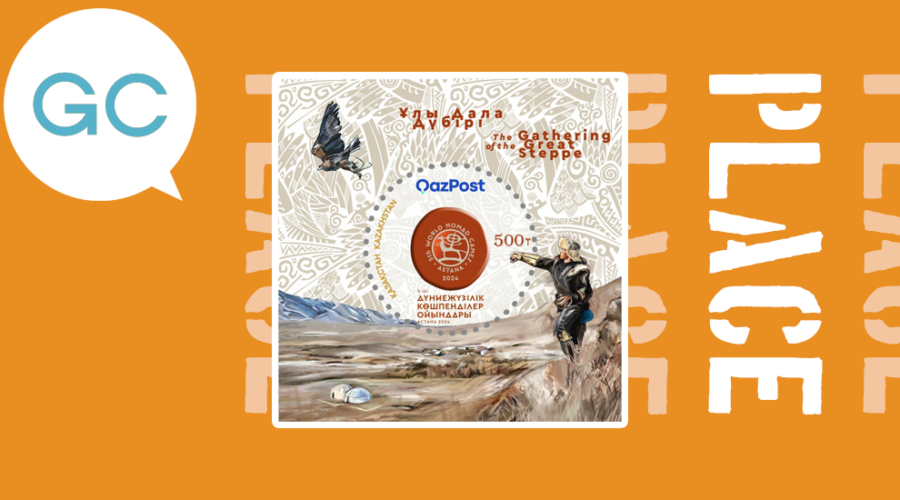For Kazakhstan, the Central Asian nation of around 20 million people, it was an honor to host the World Nomad Games last week. This event epitomizes the strength of cultural and sports diplomacy, allowing the former Soviet republic to present its rich heritage and traditions to the world.
Over the course of a week, around 2,800 participants from 89 countries took part in the 5th World Nomad Games, held in Kazakhstan for the first time. The greatest number of athletes came from various regions of Kazakhstan – 195 in total. Kyrgyzstan sent 172 athletes, Russia 144, while Mongolia had 66 participants in Astana. A small team of Serbian athletes even participated in the event in the Kazakh capital.
The competitors engaged in traditional nomadic sports – from archery and long-distance horse races, to wrestling on horseback and hunting with eagles, hawks or falcons.
Традиционално стреличарство. V светске номадске игре у Астани.
Traditional Archery. V World Nomad Games in Astana. #worldnomadgames 2024
🎥video by @erekerus pic.twitter.com/obZIMj24Sc— Embassy of Kazakhstan 🇰🇿 in Serbia 🇷🇸 (@InQazaqstan) September 13, 2024
These unusual activities are deeply rooted in the history and culture of the nomadic peoples of Central Asia. But for visitors from other parts of the globe, the World Nomad Games offered a cultural experience like no other. In their home countries, they do not see two half-naked men dragging each other forward and attempting to knock one another off their horses every day. Similarly, it is not common to see a dead sheep or goat being thrown into an opponent’s well on the playing field.
Attending the event also allowed the international audience to experience the warmth and hospitality of the Kazakh people, while giving Kazakhstan a golden opportunity to promote its potential for tourism. Prior to the 5th World Nomad Games, Astana was preparing to welcome dozens of thousands of tourists.
For visitors coming from Europe, India, the United States, or the Middle East, the World Nomad Games was undoubtedly a rare and captivating display. Besides sports, over 100 cultural activities were also held in the Ethno Village, near the Hippodrome “Qazanat” where the Games were hosted. Each region of Kazakhstan showcased its unique traditions and culinary delights through their own yurts.
Whilst in #astana I saw adverts for the #5thnomadgames which included #wrestlingonhorseback . Thanks to YouTube, I now know what it looks like. pic.twitter.com/8S661SxMC3
— JaneTaylor 💙🇪🇺🚣🚴🏻♂️ (@jane9758) September 11, 2024
But the World Nomad Games were much more than just a sporting and cultural event. They were a key part of Kazakhstan’s strategy to strengthen its role as a vital connector between East and West. At the same time, Kazakh policy makers sought to advance the country’s trade and diplomatic goals, while preserving its well-known “multi-vector” foreign policy.
Given that athletes from both Russia and the United States participated in the event in the Kazakh capital, the organizers seem to have achieved at least one of their goals – spreading peace and promoting cultural heritage around the globe. Interestingly enough, the World Nomad Games occurred just a month after the Olympics in Paris, where teams of athletes with a Russian passport were not permitted to compete. Kazakhstan, therefore, served as a place where participants from nations often viewed as major geopolitical rivals could come together and enjoy various nomadic sports activities.
“Acting as a bridge between the West and the East, the nomads contributed to the rapprochement of different cultures,” Kazakh President Kassym-Jomart Tokayev said at the World Nomad Games grandiose opening ceremony, where hundreds of musicians, dancers and singers performed in front of Central Asia’s political elite.
The presence of leaders of countries such as Uzbekistan, Kyrgyzstan, and Turkmenistan, as well as heads of Russia’s regions of Tatarstan and Sakha (Yakutia) – where Turkic peoples make up the majority of the population – at the informal summit during the World Nomad Games suggests that the event did also have a political dimension. Quite aware of the ways politics and sport can belong together, Kazakh leaders used sports diplomacy to strengthen their country’s tourism and improve Kazakhstan’s global image by hosting the Games.
Simultaneously, they leveraged the event to preserve and protect nomadic and steppe traditions, which face growing threats from globalization, technological advancements, and even ecological shifts. But the rising popularity of the World Nomad Games – founded in Kyrgyzstan in 2014 – indicates that more people are becoming interested in traditional nomadic lifestyle despite modern challenges.
This is not surprising given that, as Tokayev stressed, nomadic civilizations have left a deep mark on world history.
“Five thousand years ago, nomads domesticated the horse and formed an equestrian culture that spread throughout the world,” the Kazakh leader emphasized, stating that nomads “share a common culture and spiritual values, as well as a spirit of freedom.”
In two years, the 6th World Nomad Games will take place in Kyrgyzstan. The event is coming home and it promises to further highlight the rich heritage of nomadic peoples.
Image: Kazakhstani stamp commemorating the 2024 World Nomad Games held in Astana, Kazakhstan by kazpost.kz

